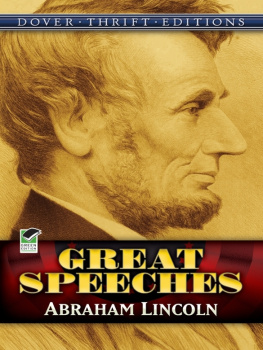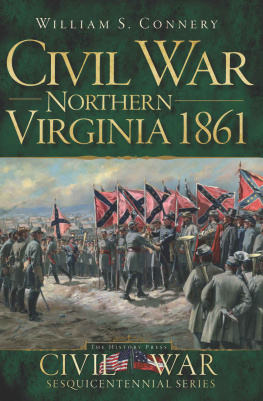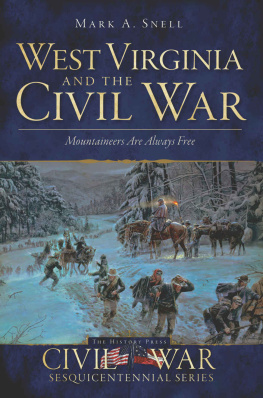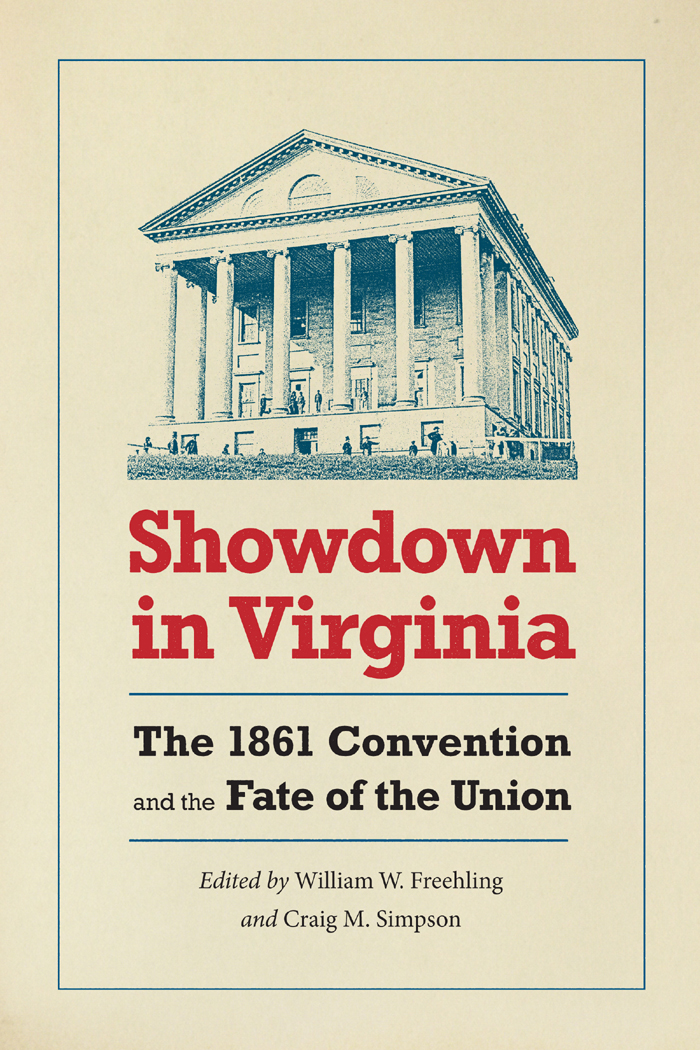Jeremiah Mortons Secessionist Speech, February 28
Jeremiah Morton, representing
Orange and Greene counties in the western Piedmont (together 49.8 percent enslaved), was a convention exception in many ways. Most of Virginias leading secessionists had been Democrats, and most Unionists had been Whigs. Morton was the anomalous former Whig who was a prominent disunionist. Most convention speakers were in their forties. Jeremiah Morton was sixty-one. Almost all the other speakers, lawyers by trade, owned only a few nonplantation slaves. Mortons several large plantations netted him a then-princely $30,000 per year. Few other speakers had held higher office than a seat in Virginias lower house. Morton had been a U.S. congressman. This atypically aged, wealthy, and prominent squire, in short, exemplified the planter who supposedly led his class to ruin. But he actually was an oddity among those who guided the Virginia convention toward Armageddon. The scourge of war, the fallen grandee would seven years later lament, has swept all from me, and... I stand a blasted stump in the wilderness.
Mr. President: I feel deeply impressed by... the vast importance of... this assembly.... [In] the history of the world,... [no] fanaticism, striking into the vitals of a proud nation, has progressed with the same rapidity as this abolition fanaticism has.... Our soil has been invaded; our rights have been violated; principles hostile to our institutions have been inculcated in the Northern mind and ingrained in the Northern heart, so that you may make any compromise you please, and still, until you can unlearn and unteach the people, we shall find no peace.
Mr. President, suppose you were to take a boy of the size of that boy [pointing to one of the pages], and have him taught by a mother, and by a father, and by a preacher, and by every teacher, in the Catholic religion, in a Catholic country.... It would be a miracle, if, at the age of twenty-one, he would not be a Catholicor a Protestant, if instructed in the doctrines of that church, by a similar process. When we find, therefore, that in the Northern States the youth are instructed in the nursery, in the schoolhouse, in the church, by the press, to regard slavery as a sin and a crime, and those who cherish it as... unworthy of recognition upon a footing of social equality with the people of the North, and fit objects of the scorn and contempt of the worldI ask you what is the hope, what is the chance of effecting a change?
Mr. President, by the election of Mr. L INCOLN , the popular sentiment of the North has placed in the Executive Chair, of this mighty nation a man who did not get an electoral vote South of Mason and Dixons line, a man who was elected purely by a Northern fanatical sentiment hostile to the South.... The Government is no longer a Government of equal rights. Our enemies have now command of the Executive Department, they have command of both branches of Congress. How long will it be before they will have command of the Judiciary Department? You may judge of that from the fact that a recent nomination to the Senate of the United States of a national man has been postponedrejected, I believein order that that patronage may fall into the hands of the incoming administration. Who will a Black Republican President and a Black Republican Senate confer that appointment upon? I am led to believe that... the man of the most distinguished talents and the nearest approximation to the Black Republicans is the man upon whom that high station will be conferred.
They will administer the Government for the strengthening of the party; they will make capital out of every appointment; and, Mr. President, with a Government, every Department of which shall be in the hands of the Black Republicans, administered upon the principles upon which William H. Sewardthat for many years has been the general type of all administrationswhat are the number that will be purchased up by the patronage of the Government? I do not mean to say, Mr. President, corruptly. But when there is a fat office which is tendered, and the aspirant for that office knows how important it may be that his opinions should be identical and should assimilate with the powers that be, how natural it is for a man under circumstances like these to satisfy himself that he once was a little wrong, and that the sober, second thought, is the best position. This is human nature. How often does it come to pass that a lawyer of distinguished talents and unquestioned integrity, receives a fee in a bad cause, and yet, in the hour of investigation, in endeavoring to induce the court and the jury to think that the wrong is the better side, he produces the very same effect upon his own mind?
And I tell you Mr. President, that Abraham Lincoln will seek to hold a power over all the Southern States.... If you stay... [in the Union] for the next twelve months there will be more beneficent showers of public patronage upon Virginia and Maryland and TennesseeI think he would hardly go to North Carolinabut he will go to Kentucky and Missouri, sooner than to any other States....
And, Mr. President, when a man gets a rich office, how many friends circle around him to congratulate him.... The donee of a fat officebe it a Judgeship, be it a Collectorship, be it a Postmaster of this cityhas much power, and each one will form a nucleus of sympathizing friends with the powers that be.... Let us acquiesce, and I tell you that in the next Presidential canvassif not in the next, in the second; certainly in the thirdyou will find Black Republicans upon every stump, and organizing in every county; and that is the peace that we shall have from this glorious Union....
My heart has been in this Union and my brightest hopes connected with its welfare. I have but one child, and her destiny is linked with a Northern man. But he is upon Virginia soil, and like many of the Northern men who are with us for a time, has become true, and even truer than her own native sons to the rights of the South. But his kindred are in the North, and his sympathies with parents and relatives and friends give me an interest in his behalf; so that I would do what I could to preserve the Union, if I could preserve it upon terms of honor and of safety.
But, Mr. President, it is as apparent to my mind as the sun at mid-day, that unless we can have securityand I am not speaking of such securities as this miserable abortion which the Peace Conference presentsunless we can have securities of political power, I say that this Union ought to be, and I trust in God will be dissolved.... We must have a settlement of this question, and a settlement forever. It has been an ulcer in our side for thirty years.... Men in every branch of the business of life do not know how to shape their contracts because of the agitation every four years of this never-dying question of African slaveryI say, I want to see this question put to rest, not where it will spring up to disturb my children and involve them in utter ruin twenty or thirty years hence; but I want to put it where it never will disturb my descendantsfor if there is to be bloodshed, and this question cannot otherwise be settled, I would rather give the blood that runs in my veins, to preserve that which is in the veins of my helpless offspring....
How can the question be settled?... If that National Convention had been held in time, we might, perhaps, have had some hope from such a source. and your soil was bathed in Virginia blood, and you [turning to Governor Wise], like a true man, led the hosts of Virginia to repel the invader, however you may have received the censure of some, I do say every lady of Virginia paid you her meed of applause, and I tendered to you personally my thanks and my approbation.





